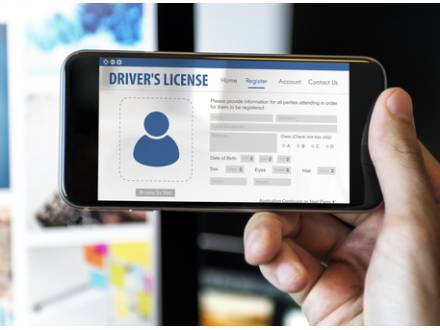Could Using a Digital Driver’s License Lead to Self-Incrimination? | Connecticut
 Modern technology offers a great deal of convenience. Information stored on phones and other digital devices can be accessed quickly and easily, and many people use their phones to make quick purchases or send information to others. The increasing use of digital IDs, such as driver’s license information stored on a phone, may make some activities easier, such as checking in for a flight at an airport. However, this convenience may come with a cost, and people should be wary of the use of digital IDs in interactions with police officers.
Modern technology offers a great deal of convenience. Information stored on phones and other digital devices can be accessed quickly and easily, and many people use their phones to make quick purchases or send information to others. The increasing use of digital IDs, such as driver’s license information stored on a phone, may make some activities easier, such as checking in for a flight at an airport. However, this convenience may come with a cost, and people should be wary of the use of digital IDs in interactions with police officers.
Anyone who has been arrested, is being questioned by police, or may potentially face criminal charges should be sure to understand their rights. Taking steps to avoid self-incrimination can be crucial in these situations. An experienced attorney can provide invaluable guidance and work to defend against a conviction, but it is also important for people to avoid saying or doing anything that could be used against them.
Privacy Concerns Related to Digital IDs
Smartphones have become a digital hub of personal information, allowing people to access data and share it with others. iPhone users may use Apple Wallet to store credit cards and make payments, and people with Android phones may use Google Wallet or other similar services to do the same. Several states have begun using digital ID systems that allow driver’s license information to be added to these services. This may encourage people to stop carrying physical ID cards and use the digital versions on their phones when necessary.
However, privacy advocates are advising against using digital driver’s licenses in interactions with police officers. When a person hands their phone to an officer to let them view their driver’s license information, this could be seen as an indication that they have consented to allow the officer to access other data stored on the device. This could inadvertently lead to self-incrimination if police officers uncover information indicating that the person violated the law in some way.
The laws regarding police searches of phones and digital devices have not been fully settled. Some courts have found that search warrants are required before police can force people to unlock their phones, but others have ruled that these restrictions do not apply when using biometric information such as fingerprints or face scans to unlock devices. However, giving an officer access to a phone may allow extensive searches to be performed, even if a person believed the officer would only look at their driver’s license information.
In many cases, people may be willing to let officers access their devices because they believe they have nothing to hide. However, just as talking to police without being represented by an attorney may lead to inadvertent self-incrimination, giving access to personal details stored on a device could have serious legal consequences. Officers could access details such as location information indicating that a person was in the area where a crime allegedly occurred, and this could lead to an arrest or criminal prosecution. There is no reason to ever give the police access to information that could potentially be used against a person.
Contact Our Connecticut Criminal Defense Attorney
In any interactions with police officers, it is important to assert your rights and avoid saying or doing anything that could potentially be incriminating. While a skilled Hartford criminal defense lawyer can argue against the use of evidence that may have been obtained through illegal searches, it is best to take all appropriate steps to prevent officers from obtaining this evidence in the first place. Regardless of what types of evidence may play a role in your case, Woolf & Ross Law Firm, LLC can provide you with effective legal representation as you address criminal charges, and we will fight to protect your rights. To set up a free consultation, contact us today by calling 860-290-8690.






